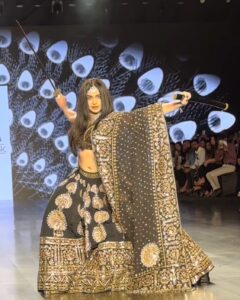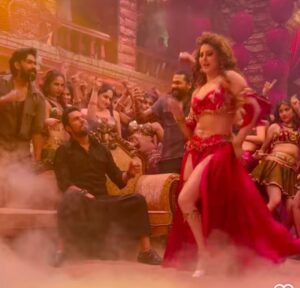How Srijit Mukherji, Rohan Sippy brought Sherlock Holmes to West Bengal with ‘Shekhar Home’
New Delhi, Sep 5 (PTI) Director Srijit Mukherji says he fought with producers of “Shekhar Home”, inspired by literary works of Sherlock Holmes creator Arthur Conan Doyle, to set the detective series in West Bengal at a time when the Indian web space is dominated by stories from Uttar Pradesh and Bihar.
Mukherji said the BBC had approached him to direct an Indian adaptation of one of their shows but he refused as the filmmaker is “not a fan of remakes”.
Instead, he pitched “Shekhar Home” to the British broadcaster as a potential adaptation of “Sherlock Holmes” in the Indian context.
“I conceived ‘Shekhar Home’ around 2018-19. The BBC had pitched a series to me. Instead of doing that I pitched ‘Shekhar Home’ to them,” Mukherji told PTI in an interview.
Citing the example of “The Family Man 2”, the showrunner said if viewers can enjoy some portions of the series in the Tamil language, there’s no reason a pan Indian series can’t be set in West Bengal.
“Unfortunately, India generally is dominated by UP and parts of Bihar in the web series space. I wanted to emphasise that there is more to India. In fact, I fought a lot with the producers because they were conscious about the show becoming too Bengali.
“I said if something doesn’t look too Punjabi, UP or Bihari, and still be pan Indian, so even if it becomes too Bengali, the show can still be pan Indian because Bengal is a part of India, right?” he reasoned.
Bengali literature already boasts of popular detective figures like Satyajit Ray’s Feluda and Byomkesh Bakshi by Sharadindu Bandyopadhyay which have been translated for screen across languages, ages and mediums.
So, why adapt Sherlock for India?
he’s a childhood fan of Conan Doyle and also loved the 2010 BBC adaptation, which made Benedict Cumberbatch an international star.
What also helped was that they faced little trouble in buying the rights to the British author’s original works.
“The best thing was all the Sherlock Holmes stories were in the public domain so we didn’t have to spend a lot on acquiring rights. That was another advantage,” said the National Award winner, who directed the first four episodes of the show.
Written by Aniruddha Guha and Niharika Puri with dialogues by Vaibhav Vishal, “Shekhar Home” stars Kay Kay Menon as the titular sleuth. The six-part series, streaming on JioCinema, is co-directed by Rohan Sippy.
Sippy, known for films such as “Bluffmaster” and two seasons of “Criminal Justice” Indian version, said it was fun to join the show in the second part of its journey.
“Primarily, my role was to shoot the last two episodes… Credit to the actual creators which is the BBC, Voot, and Aniruddha and Srijit, they are the ones who did the initial work… In that sense, it was just fun to take this on and find that tone where it’s Indian but the inspiration is still obviously Arthur Conan Doyle to keep it connected to both the author and to make it very natural in the Indian setting,” he added.
Sippy said being a part of “Shekhar Home” was akin to playing in a band where one has to look at what has been created while also trying to find out one’s own interpretation of the musical composition.
“You have all the freedom but sometimes the most interesting things are when you have some constraints and you still find a way to put a stamp on it.”
In the Indian take, Sherlock Holmes becomes Shekhar Home, Dr John Watson becomes Dr Jayvrat Sahni (Ranvir Shorey), Irene Adler becomes Iraboty Adhyo (Rasika Dugal), Mycroft Holmes becomes Mrinmoy Home (Kaushik Sen), and Inspector Lestrade becomes Inspector Laha (Rudranil Ghosh).
It is set in a fictional sleepy town called Lonpur, a clever portmanteau of London, where the original Sherlock lives, and West Bengal’s city Bolpur, where they predominantly shot the Hindi series.
Fans also get to do some fun sleuthing of their own about finding the original references to some Hindi derivatives. Episode four is titled “Bhaskarvilla”, a take on Conan Doyle’s another Holmes novel “The Hound of the Baskervilles”.
Sherlock smokes a pipe, wears a deerstalker cap, and plays the violin. Shekhar wears vibrant Batik kurtas, something that’s typically Bengali, and plays rabab, another stringed instrument. The deerstalker cap and pipe also make a brief appearance in the Hindi version.
“Initially, we thought of esraj (musical instrument) but its sound felt too melancholic. The sound of rabab has an element of intrigue which went well with the theme of the show. The idea was to have breadcrumbing throughout so that everything is like a small jigsaw piece that will somewhere go on and make some sense,” Mukherji said.
But the journey wasn’t without challenges. Since technology plays an important role in detective work, Mukherji said they had to ensure they set “Shekhar Home” in a bygone era.
“I had to set it in a small sleepy town so that the investigative technique available to Shekhar would be primitive so that we could stress more on his psychological and mental deductive process than the more scientific and mechanical process.”
That’s where the 1990s came to their rescue.
“I had two decades in mind, ’70s and ’90s. After Ani (Guha) joined me when we were discussing, we thought that we had seen a lot of ’70s, in fact, after ‘Jubilee’, we had seen a lot of ’50s as well. We thought ’90s is the decade which has not been explored that much in the Indian web space.”
Both Sippy and Mukherji are game for another season.
“I keep asking when we are starting season two whenever I meet someone from the team. The casting was bang on for a character driven show. It’s designed in a way that you can have multiple seasons,” said Sippy.
Mukherji said if they get a chance at season two, he would like to adapt some of his “hot favourites” by Conan Doyle like “The Speckled Band”, “Man with a Twisted Lip”, and “The Blue Carbuncle”.
“With audience demand, we are going to come up with six more. The problem of having an extremely good ensemble cast is that everyone’s busy. I hope the dates match,” he added.
“Shekhar Home” is produced by BBC Studios Productions India.






